Seeing the whole picture
Updated: 2015-08-05 08:55
By Xing Yi(China Daily)
|
||||||||
British historian Rana Mitter's book reminds the world of China's sacrifices in WWII that are often ignored in Western narratives. Xing Yi reports.
To remember is a good way to commemorate.
As 2015 marks the 70th anniversary of the end of World War II, a number of books on that period of history are either being published or reprinted in China.
Among them, Forgotten Ally: China's World War II 1937-1945 by British historian Rana Mitter deserves a fresh read. It examines the long-overlooked Eastern battlefield amid the Western-centered narratives of the war.
Mitter's book was first published in English in 2013 and has been available in Chinese hardcover since April.
The 45-year-old professor of history and politics at the Institute for Chinese Studies at Oxford University points out in the book that China was the first country to face the onslaught of the Axis powers in 1937 - two years before Britain and France, and four years before the United States. Yet, in the West, "many do not realize that China played any sort of role in the Second World War at all".
Mitter weaves together numerous historical materials, including declassified government files, personal correspondences and diaries, and news reports by both Chinese and foreign journalists.
He restores through his writing the images of the brutal war waged on the Chinese people by the Japanese military and the brave Chinese resistance in the face of invasion.
At least 14 million Chinese died during the war - over 17 times the combined death toll of the United Kingdom and the US, which was around 800,000.
Another 80-100 million Chinese became refugees, Mitter writes in his book, citing figures from the war archives.
Unfortunately, China's wartime sacrifices have largely faded from Western narratives and the country's role in the war wasn't properly recognized.
"If China was considered at all, it was a minor player, a bit-part actor in a war where the United States, Soviet Union and Britain played much more significant roles," Mitter writes in the preface to his book.
In an earlier review of the English version, the Wall Street Journal described Mitter's book as giving China its "historical due".
When the book's Chinese version was published in 2014, Cao Jingxing, a veteran news commentator and chief editor of Hong Kong-based TV networks Asian United Broadcasting, said had it not been for China's perseverance against the Japanese invasion, WWII would have ended with greater difficultly.
"Britain would very likely lose India ... the Soviet Union might have had to fight Nazi Germany and Japan on two fronts ... and the United States would probably lose another 1 or 2 million soldiers to beat the Japanese in the Pacific."
But China's role was somewhat neglected, wittingly or unwittingly, by its Western allies as China and Japan changed their blocs in the ideological confrontation of the Cold War.
To a certain extent, wartime history is also crucial in shaping present-day China.
"The war's legacy is all over China today," writes Mitter.
"In Nanjing, a huge combined museum and memorial commemorates the occupying Japanese army's massacre of many thousands of Chinese civilians in December 1937.
"On television, documentaries remind viewers of the record of the Communist Eighth Route Army and its resistance against Japan in northern China, and soap operas with a wartime setting tell the stories both of the Nationalist army and of the Communist. "
The book devotes one chapter to documenting the bloody killings and rapes that lasted six weeks in Nanjing, then the capital of China, in 1937.
Most of the rare accounts are from a few Westerners, including German businessman John Rabe, Nanjing University professor Lewis Smythe and American missionary Minnie Vautrin, who stayed in the city to shelter Chinese civilians by setting up an international safety zone.
Though more than 70 years have passed, the collective memory of the war against the Japanese hasn't faded from Chinese people's minds. The horrors of war are at the root of anti-Japanese sentiment among Chinese whenever Japanese officials visit the Yasukuni Shrine that honors Japan's war dead, including 14 Class-A convicted WWII criminals.
"If we wish to understand the role of China in today's global society, we would do well to remind ourselves of the tragic, titanic struggle which that country waged in the 1930s and 1940s," writes Mitter.
"Not just for its own national dignity and survival, but for the victory of all the Allies, West and East, against some of the darkest forces that history has ever produced."
Contact the writer at xingyi@chinadaily.com.cn
(China Daily 08/05/2015 page20)
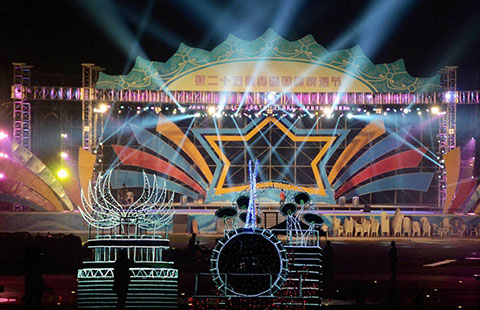
 Tsingtao gets ready for huge beer festival in China
Tsingtao gets ready for huge beer festival in China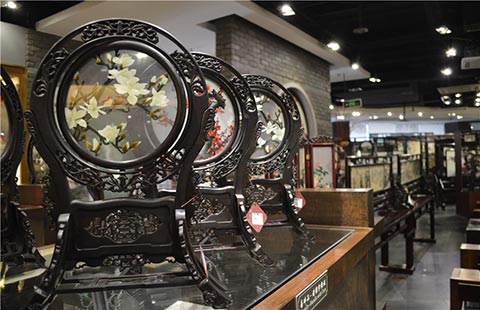
 Stunning Shu brocade and embroidery techniques
Stunning Shu brocade and embroidery techniques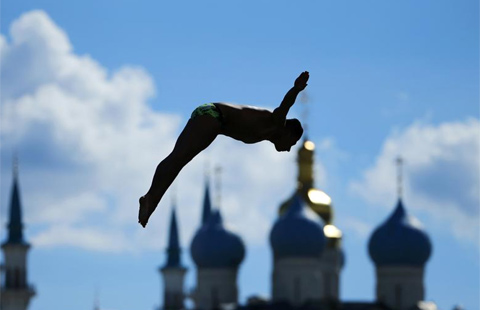
 Kazan games: Diving in the sky
Kazan games: Diving in the sky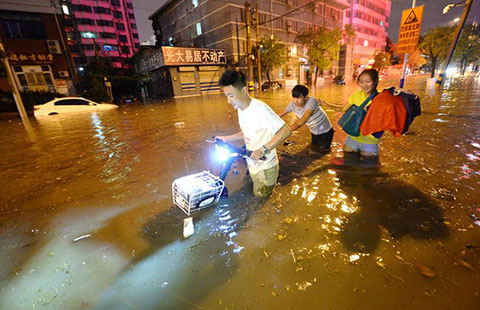
 Torrential rain wreaks havoc in Jinan
Torrential rain wreaks havoc in Jinan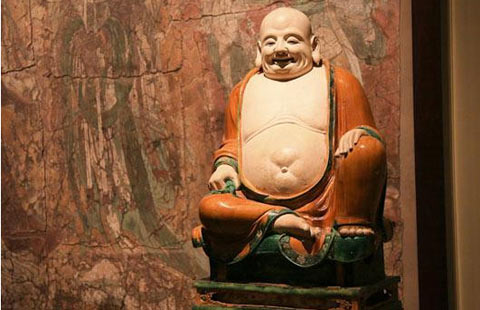
 A glimpse of Chinese cultural relics in foreign museums
A glimpse of Chinese cultural relics in foreign museums
 Flying Tigers show in New York
Flying Tigers show in New York
 Kobe Bryant frenzy grips Guangzhou
Kobe Bryant frenzy grips Guangzhou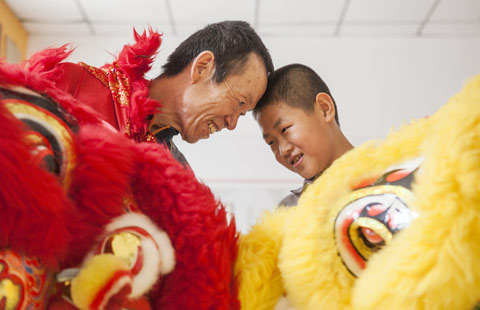
 Three generations keep traditional lion dance alive
Three generations keep traditional lion dance alive
Most Viewed
Editor's Picks

|

|

|

|

|

|
Today's Top News
Obama issues challenge on climate change
GOPs begin pivotal debate week
Negotiation seen as key to China, US cyber solution
Beijing plans 'Silicon Valley' park for traditional culture
Obama issues challenge on climate change with power plant rule
China role crucial in UN plan
Biden associates resume discussion about presidential run
Malaysia seeks help to widen search for MH370
US Weekly

|

|






